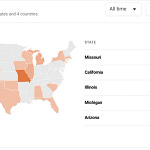We are back! It has been awhile since our last On Culture - but I’m going to work back to my old schedule, if I can, with some exceptions.
Anyway - this episode features frequent collaborator Trey Herweck and is engaged with the last issue from The Embassy - Struggling Imperfectly Forward.
Here is an excerpt:
K asked a question during the conference, a question I answered, but one that we discussed individually off line, probably over dinner. There is a lot of killing in K’s country - killing that is unjust, random, inexplicable, tragic, grievous, enraging. K’s question is about forgiveness. In thinking about discipleship, his own journey toward Christlikeness, K thinks of forgiveness - his most pressing issue. He asked me, but he, in many ways, knows more about it than I ever will - because Christ calls him to apply forgiveness in ways that seem extreme to me, to us. He is committed to following that call in ways it is hard, probably impossible, for me to imagine.
But it is a commitment we share. A commitment to forgive, to be transformed into a more forgiving person. It is one part of the commitment of discipleship. It is a commitment we understand as foundational to Christianity, and as something we all face. As a small group of us spoke about it together, we had all struggled with forgiveness, with this commitment. I am convinced that all transformation toward the image of Christ is basically impossible for us - we are called to participate with God’s Spirit - but He must empower it because we can’t do it ourselves. That might sound good in theory, but it goes against every fibre of our grain. We have to actively and intentionally move in the direction of transformation, and, at the same time, cry out for the ability, for the desire - or for the ability absent the desire, to forgive - or to love, to have peace, to have the faith necessary to continue the journey. So to say it is hard to forgive misses the point - our part is hard, the divine component necessary is impossible. Once, when Jesus explained the difficulty for those with means to be in a right relationship with God, his disciples were greatly astonished and wondered how it was possible for anyone to be saved. Jesus told them, and us, what is impossible for us is possible with God.
Jesus looked at them and said, “With man this is impossible, but with God all things are possible.”
Matthew 19:26
Our main problem with this - the impossibility of truly following Jesus, of truly forgiving, having faith, peace, hope, wisdom, love - is that we attempt to make it possible. We want to measure it, analyze it, make it into an abstraction. We want it to be difficult, of course, but possible. If we are honest, we want to be successful at it - to feel good about our progress. And we don’t want to feel guilty about our anger with someone we have already struggled to forgive. And so we either explain away our inability to forgive that person - the injustice done is too great (but isn’t that the point?) - or we explain away the injustice into something we don’t have to forgive. But the harm remains, the hurt remains - not just for us but, worse, for people we love. To truly wrestle with it, to truly feel the injustice, the anger, to grieve the loss - an injustice, anger, and loss that does not go away - and then to forgive? It is beyond me. It is beyond you, I believe. It is beyond K. That is why he asked, I think.
Thanks for listening!










